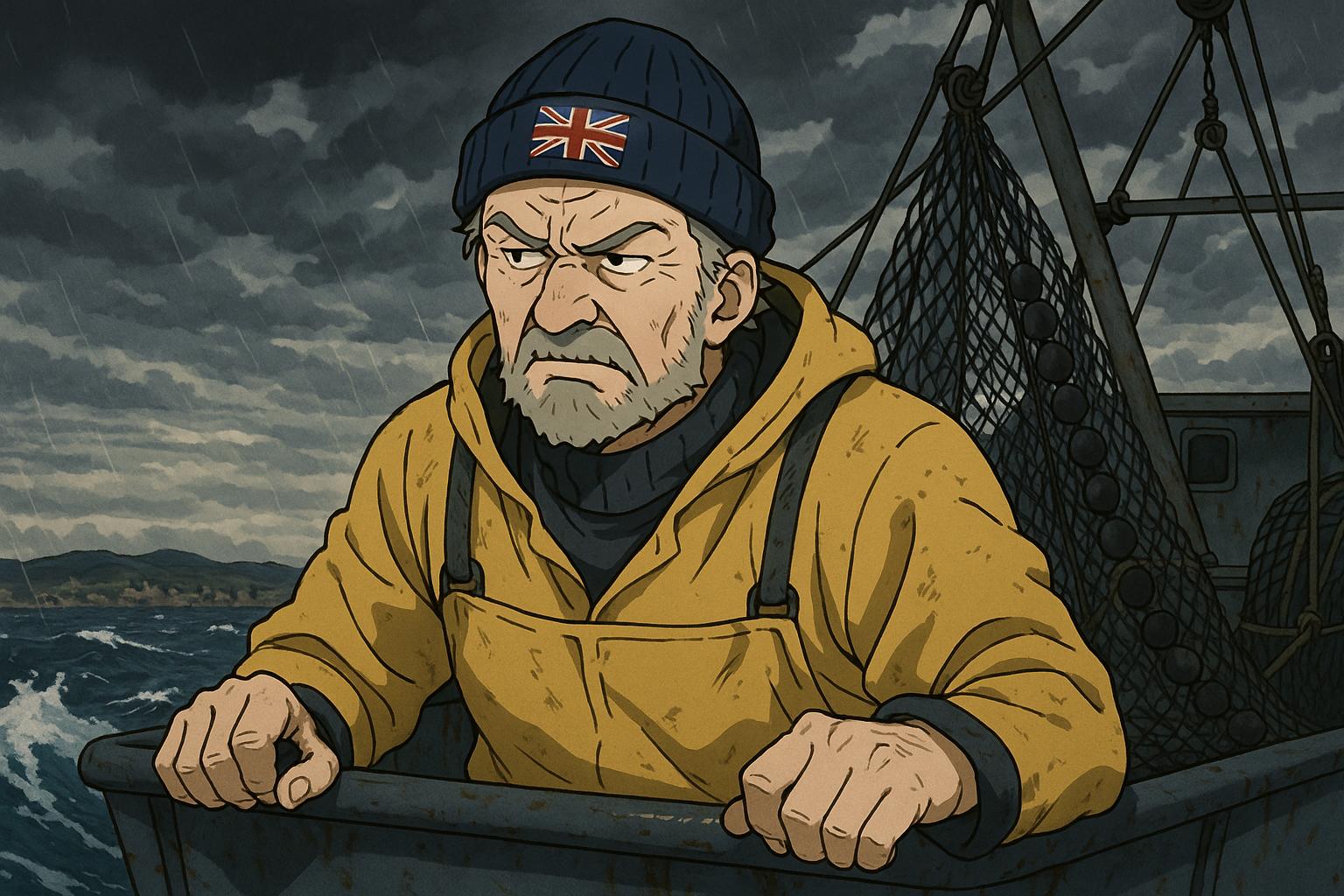The fishing industry in the UK is facing a critical juncture, characterised by a rising tide of frustration among fishermen and scepticism towards government negotiations with the European Union. Recent comments from seasoned fisherman Tom Parker encapsulate the growing discontent over the state of the sector. Parker, who has spent decades on the water, expressed his intention to leave the UK for Spain, citing less burdensome regulations as a primary motivator. “At the moment it is out of the talking phase,” he stated, revealing his broader ambitions beyond British shores, particularly after being disillusioned with the mounting pressures faced by local fishermen.
The backdrop for Parker’s comments is the recent agreement signed by Sir Keir Starmer, which extends mutual fishing rights between the UK and the EU for another 12 years. Critics, including Parker, view this as a detrimental compromise that perpetuates the decline of the British fishing industry, exacerbating issues tied to an ageing workforce and bureaucratic constraints. Parker lamented that “the whole thing is collapsing anyway,” underscoring the demographic crisis in fishing, where many practitioners are nearing retirement age and fewer younger individuals are entering the profession.
The backdrop to Starmer’s deal is a broader landscape of UK-EU relations, significantly redefined in the wake of Brexit. A recent agreement aims not only to fortify trading ties but also to establish a framework for security and defence cooperation. While Starmer heralded an anticipated economic boost of £9 billion by 2040, dissenting voices argue this comes at the expense of the fishing community, which has been particularly vocal in its disapproval. The deal’s provisions allow EU vessels continued access to fisheries, leading industry leaders to question whether the UK government is prioritising its coastal communities adequately.
As discussions regarding the arrangement progress, commentary from experts highlights the stakes involved in the fishing industry's future. Mike Cohen, from the National Federation of Fishermen's Organisations, pointed out that EU fishermen currently extract around £500 million worth of fish annually from UK waters, a situation that has provoked calls for more stringent protections of local fisheries. The negotiations have positioned the fishing industry at the centre of broader economic discussions, affecting the livelihoods of countless British fishermen.
Tom Parker's stark criticism of the government illustrates broader sentiments of betrayal within the fishing community. “They don’t care,” he claimed, alleging that politicians show little understanding of the economic ramifications of their decisions. His frustrations are echoed by others in the industry who feel sidelined in the decision-making processes that directly impact their livelihoods. As Parker noted, “If there is no fisherman, there is no one to be on the boats,” highlighting the existential threats posed by current policies.
Negotiators have an uphill battle as they work to secure a deal that balances economic benefits with national interests, especially in an industry that has historically been a cornerstone of coastal economies. Critics have suggested that any compromises may lead to fatal repercussions for the British fishing industry, potentially undermining years of effort to regain sovereignty over fishing rights post-Brexit. As the industry grapples with these challenges, the urgency for a coherent and future-focused strategy has never been more pronounced.
In the midst of these discussions, the government has announced plans to modernise the fishing sector, presenting an ambitious vision for a sustainable, resilient industry. However, many in the fishing community remain sceptical, questioning whether the reforms will genuinely address the complexities of marine management or simply serve as political posturing.
As the UK prepares for ongoing negotiations with the EU, the fate of its fishing industry hangs in the balance, reflecting a microcosm of the larger struggles faced by sectors grappling with the consequences of Brexit. Fishermen like Tom Parker are not merely expressing discontent; they are signalling the urgent need for transformative action that genuinely supports the industry’s survival and growth.
Reference Map
- Paragraphs 1-2
- Paragraphs 3-4
- Paragraph 5
- Paragraph 6
- Paragraph 7
- Paragraph 8
- Paragraphs 9-10
- Paragraph 11
Source: Noah Wire Services
